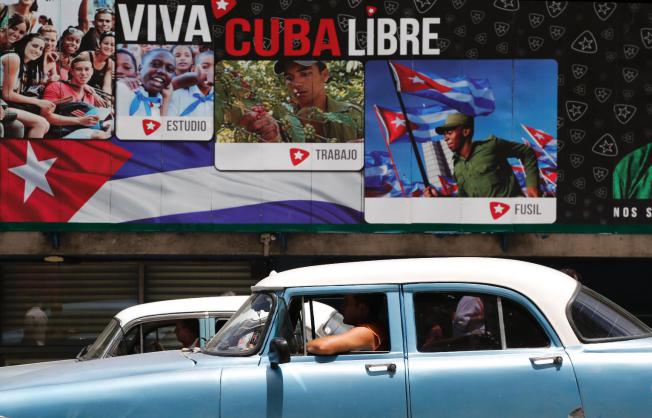
Close but no cigar: US-Cuba wrangle on embassies 6 months after shock announcement on warming
Six months ago Wednesday, Presidents Barack Obama and Raul Castro stunned the world by announcing an end to their nations’ half-century of official hostility.
U.S. travelers, politicians and executives flew to Cuba as if a Caribbean Berlin Wall had crumbled. Some business-backed interest groups lobbied Congress to end a more than 50-year trade embargo. American soccer and basketball stars played for excited crowds in Havana. The website Airbnb expanded to the island, listing thousands of private homes available for rent across the country.
U.S. and Cuban diplomats went hunting for additional office space, readied flagpoles and ordered office supplies that say “embassy” instead of “interests section.” Yet, even as observers say a deal is imminent, a half year later the two governments have not taken the important but symbolic step of turning their “interests” offices into formal embassies in Havana and Washington.
“It shows you the complexity of this process,” said Jesus Arboleya, a political scientist and former Cuban diplomat in Washington. “If the first step has taken this much time, imagine the conflicts that can develop after it gets started.”
No embassy deal has been announced despite four rounds of wrangling over U.S. diplomats’ freedom to travel around Cuba and import supplies. The issues on the table after the embassies open are far more complicated. They include talks on human rights; demands for compensation for confiscated American properties in Havana and damages to Cuba from the embargo; and possible cooperation on law enforcement that includes the touchy topic of U.S. fugitives sheltering in Havana.
Plenty of people and groups oppose any U.S.-Cuba warming, including some dissidents on the island, anti-Castro Cuban-Americans and some members of Congress who believe the new policy essentially rewards Communist leaders for decades of human rights abuses. Presidential Republican candidates like Sen. Marco Rubio, the son of Cuban immigrants, and former Florida Gov. Jeb Bush of Florida have both come out firmly against rapprochement.
But polls say detente has strong public backing in both countries, leading many to believe the process is irreversible.
“Even if it takes a while, for whatever reason, the embassy will open and relations will be re-established,” said David Fuentes, a parking lot attendant in Havana. “It just seems inevitable to me.”
Sen. Jeff Flake, a key Republican advocate of better ties, met with Cuba’s foreign minister and first vice president over the weekend and told The Associated Press that an embassy opening date is “imminent.”
But some advocates fear the broader process is moving too slowly to guarantee that a future U.S. president won’t be able to reverse Obama’s loosening of the trade embargo on Cuba, just as Ronald Reagan and George W. Bush did after openings by Jimmy Carter and Bill Clinton.
Robert Muse, a Washington attorney specializing in U.S. law on Cuba, said Obama deserves credit for his bold and unexpected opening with Cuba in December, but is also justly criticized for letting the relationship get bogged down in the minutiae of negotiations over embassy operations.
“I would like to see the president maintain a pace of normalization that will get him to his goal. The goal is the legacy of normalized relations between the U.S. and Cuba,” Muse said. “You can’t negotiate your way to normalization with Cuba in the time that Obama has to get this done.”
Advocates of normalization face powerful brakes on progress in both countries.
In Washington, anti-Castro lawmakers have attached riders to appropriations bills that would roll back Obama’s loosening of trade and travel.
(From: US News)

